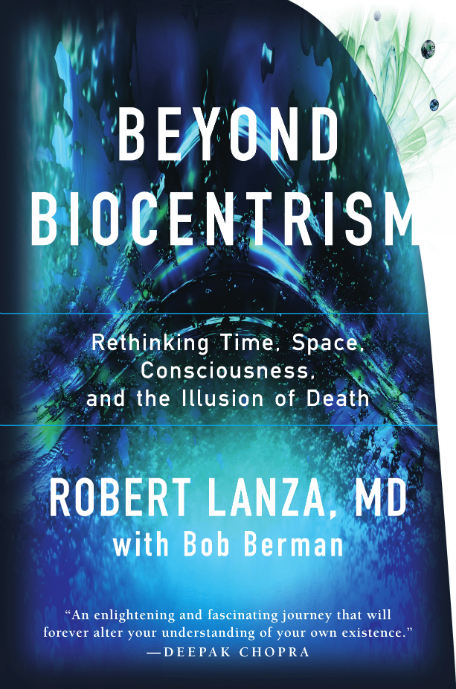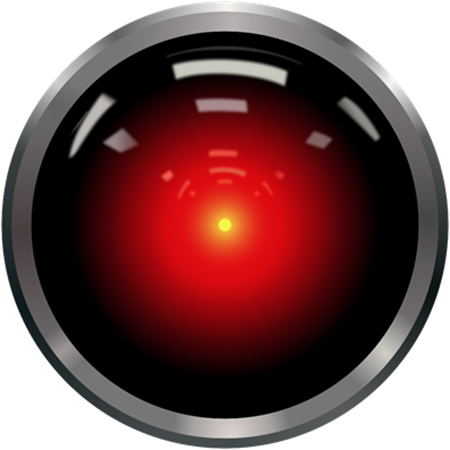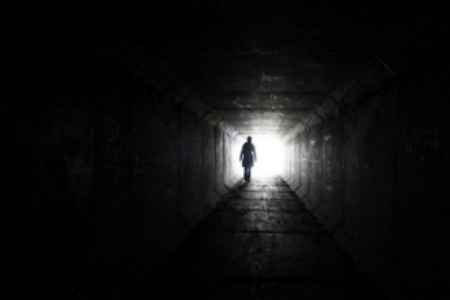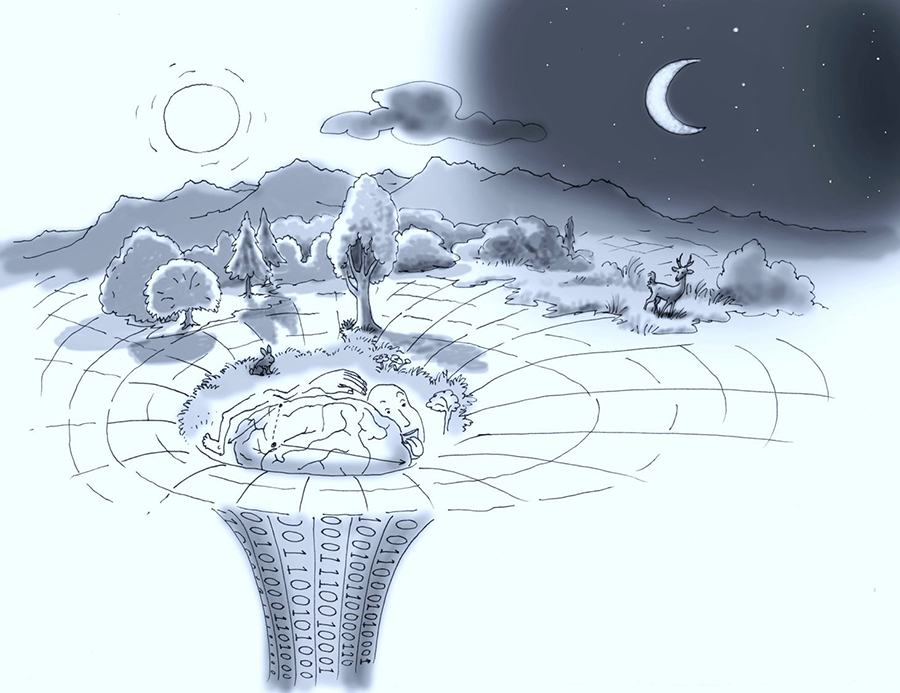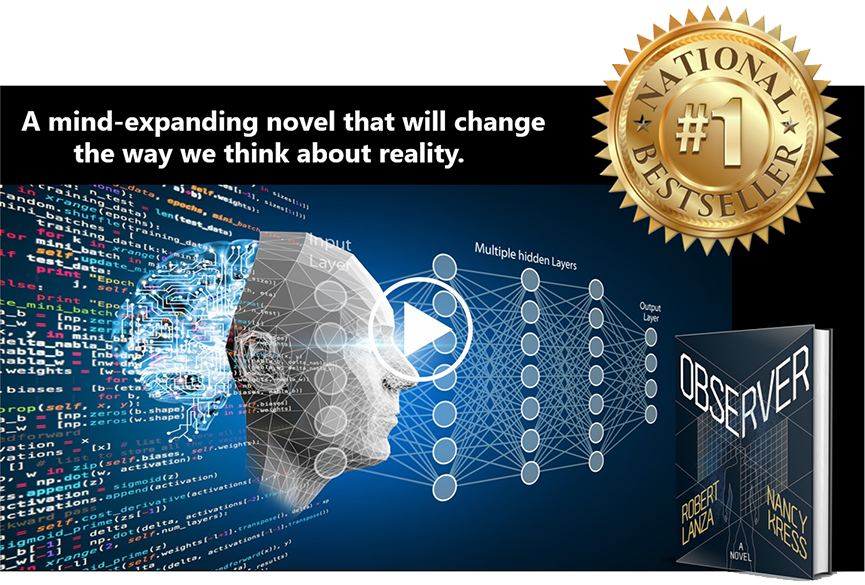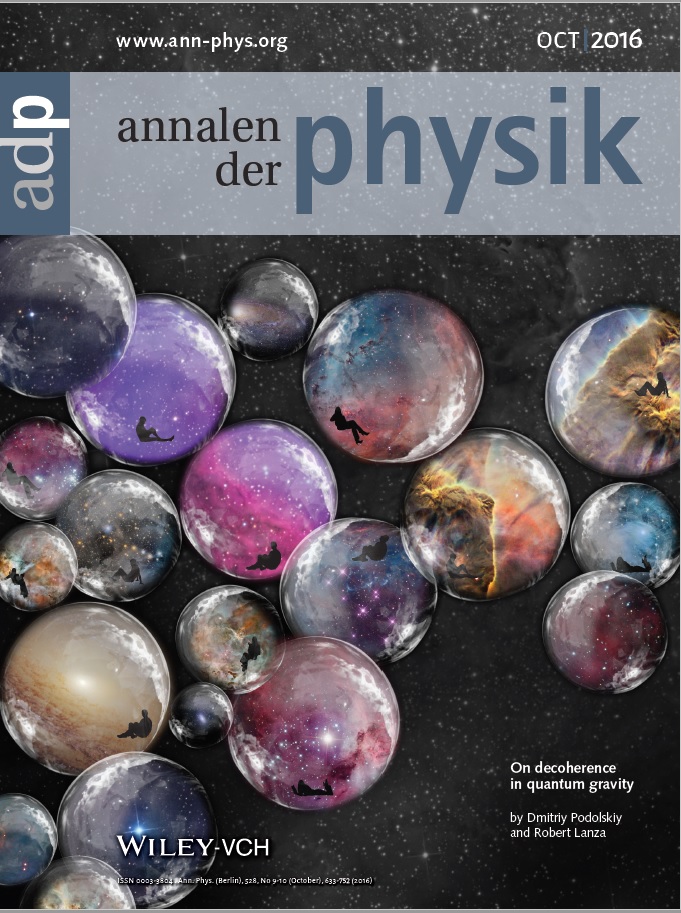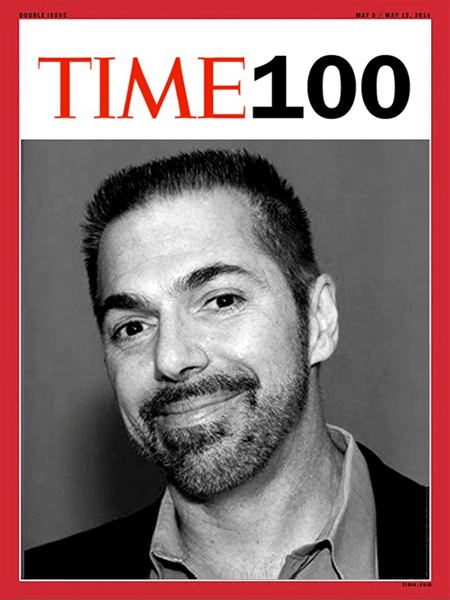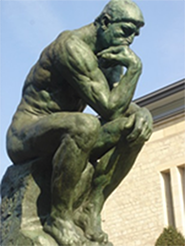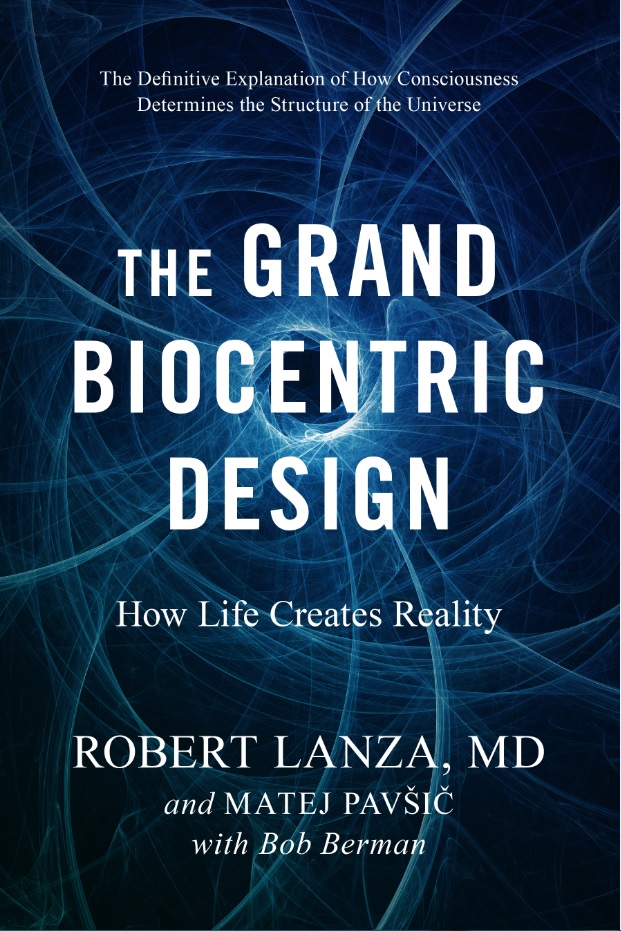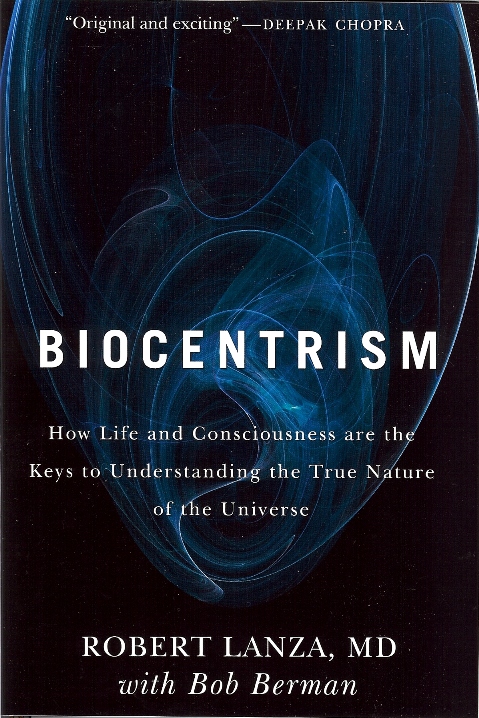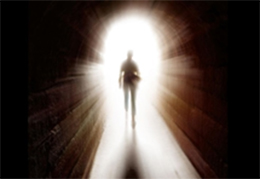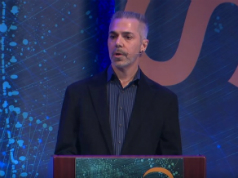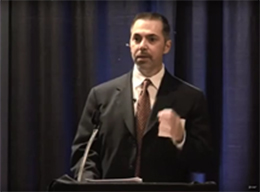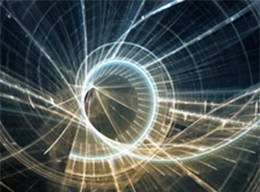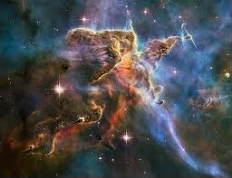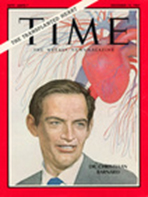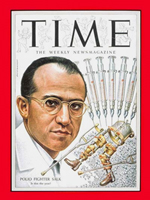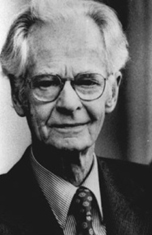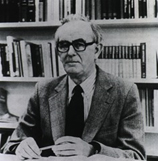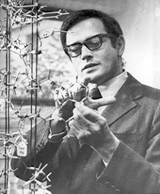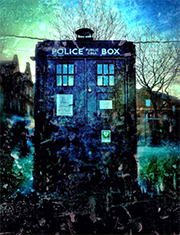Biocentrism shocked the world with a radical rethinking of the nature of reality … but that was just the beginning.
In Beyond Biocentrism, acclaimed biologist Robert Lanza, one of TIME Magazine’s 100 Most Influential People in 2014, and leading astronomer Bob Berman, take the reader on an intellectual thrill-ride as they re-examine everything we thought we knew about life, death, the universe and the nature of reality itself.
It starts acknowledging that our existing model of reality is looking increasingly creaky in the face of recent scientific discoveries. Science tells us with some precision that over 95% of the universe is mostly composed of dark matter and dark energy, but must confess that it doesn’t really know what dark matter is, and knows even less about dark energy. Science is increasingly pointing towards an infinite universe, but has no ability to explain what that really means. Concepts such as time, space and even causality are increasingly being demonstrated as meaningless.
All of science is based on information passing through our consciousness, but science doesn’t have a clue what consciousness is. Studies have repeatedly established a clear linkage between subatomic states and observation by conscious observers, but science cannot explain this linkage in any satisfactory way. Biologists describe the origin of life as a random occurrence in a dead universe, but we have no real understanding of how life began, or why the universe appears to be exquisitely designed for the emergence of life.
Biocentrism isn’t a rejection of science. Rather, biocentrism challenges us to fully accept the implications of the latest scientific findings in fields ranging from plant biology and cosmology to quantum entanglement and consciousness.
By listening to what the science is telling us, it becomes increasingly clear that life and consciousness are fundamental to any true understanding of the universe. This forces a fundamental rethinking of everything we thought we knew about life, death, and our place in the universe.
"Robert Lanza and Bob Berman present an audacious program to restore meaning to science—to provide explanations that go deeper than today's physical theories. Beyond Biocentrism is a joyride through the history of science and cutting-edge physics, all with a very serious purpose: to find the long-overlooked connection between the conscious self and the universe around us." — Corey S. Powell, former Editor-in-Chief, Discover Magazine
"This intriguing and provocative book will challenge some of what you know and push you into rethinking your view of science — all the while entertaining you with a fast-paced, exhilarating narrative journey." — David J. Eicher, Editor-in-Chief, Astronomy magazine
"Lanza and Berman's latest statement of their theory of "biocentrism" changes the way we think about age-old religious questions such as the origin of the universe and human immortality. Based on cutting edge work in physics and biology and explained with exceptional clarity, Beyond Biocentrism is must reading for anyone interested in science and religion." — Ronald M Green, Professor Emeritus for the Study of Ethics and Human Values, and former Chairman of the Department of Religion at Dartmouth College
"Beyond Biocentrism delves further into the role of the observer and consciousness. It offers a neurobiological point of view to help answer questions about the world around us. Lanza and Berman make the journey towards a better understanding of the role of consciousness and perception. I liked the book quite a lot! It was a fun read." — Kwang-Soo Kim, Professor of Psychiatry and Neuroscience, Harvard Medical School, and Director, Molecular Neurobiology Laboratory, McLean Hospital
In Beyond Biocentrism, stem cell pioneer Robert Lanza, writing with astronomer Bob Berman, presents a lucid tour de force of his thrilling but controversial theory that consciousness creates reality and the cosmos itself. Will machines ever achieve consciousness? Are plants aware? Is death an illusion? These are some of the big questions tackled in Beyond Biocentrism, which serves up a new, biology-based theory of everything that is as delightful to read as it is fascinating. Tremendously clear and lovely writing — a huge achievement. — Pamela Weintraub, Aeon Magazine, and former Executive Editor of Discover Magazine and Editor-in-Chief of OMNI (Internet/Magazine)
"Lanza and Berman employ cutting edge science to rediscover ancient truths about life and death and reconceptualize our very notions of reality and consciousness. Beyond Biocentrism is an enlightening and fascinating journey that will forever alter your understanding of your own existence." — Deepak Chopra, Bestselling Author (heralded by Time magazine as one of the top heroes and icons of the century)
Beyond Biocentrism is a must read for anyone who has ever wondered where modern science (and the weirdness of relativity and quantum mechanics) is going. What does it all mean? Brilliant and insightful. Few books come along in our lives that change the way we see the world. Beyond Biocentrism is such a book." — Ralph D Levinson MD, Health Sciences Professor, UCLA
"Lanza and Berman take the reader on a remarkable journey, setting out to prove that there is more to life and existence than we have assumed. They present scientific evidence that makes us re-consider everything we've thought to be true about the nature of reality. Beyond Biocentrism is a fascinating and thought-provoking "must-read" book that shows us a new way of looking at the universe and ourselves." — Anthony Atala, MD, W. H. Boyce Professor, Chairman, and Director of the Wake Forest Institute for Regenerative Medicine, Wake Forest University
"There are few intellectual endeavors more thrilling than contemplating the role of human consciousness in creating reality and the universe, and Lanza and Berman bring to life the quest for understanding how that can possibly be so. If you know just enough physics to wonder whether the moon is still there when no one is looking at it, and even if you've never thought about anything so seemingly preposterous, you'll have a great time reading Beyond Biocentrism." — Sharon Begley, Senior Science Writer at Stat, and former Science Editor and Correspondent for Newsweek, the Wall Street Journal, and Reuters
The first thing I must say about this book it that there are not enough stars to describe what a good read this book truly is… I studied physics and can say for myself that I have a mind of a scientist that is (over) loaded with logic. But I am also a yoga teacher and since my father's death nearly 10 years ago, I have been actively looking for answers about death, immortality and nature of space and time. I read so many books about the topic, I lost count. That was until I came across this book. Authors finally put it all together for me that both my scientific, logical mind and my spiritual mind could put it all together in a manner that it finally all made sense… This book opened my eyes to possibilities that no one has ever presented in such a concise and beautiful way before… it is priceless and I am keeping it as a reference in my library. It has underlining all over the place and I just cannot stop talking about it to everyone I know.
… there are not enough stars to describe what a good read this book truly is… it is priceless and I am keeping it as a reference in my library. It has underlining all over the place and I just cannot stop talking about it to everyone I know.”
Beyond Biocentrism is another masterpiece by Robert Lanza… This is a great book that can be appreciated regardless of "spiritual" or "religious" backgrounds (or lack thereof) because it doesn't try to push any of those concepts (nor does it render them bull$h!t either) so those with spiritual or religious beliefs as well as true atheists can still appreciate what is presented here. The fact is, Lanza is just presenting what has been discovered through the scientific process, not preaching any type of doctrine.
Perhaps the highest praise I can give a book is that it is thought provoking and original…so very few books manage one or the other…this does both quite well. Initially the book sounded intriguing (how could it not?) but I feared it would be filled with a lot of new age feel good ideas that were light on substance and heavy on dogma. The author avoided those traps with ease. Instead, the reader is greeted from the earliest pages of the book with some of the limits on what we know…and don't know…about the universe, time and space. These are not conspiracy theories not do they attempt to negate science - it is simply a statement about the known limits as currently found in science today. Those form the foundation for what could be possible alternative perspectives held throughout history. Once again, the author does not require the reader to put his/her brain on the shelf in order to engage in a bit of mental gymnastics but rather present a compelling presentation to show why certain ideas were originally adopted and why they fell out of favor. Once the reader has found a footing the real fun begins. While it would be unlikely to agree with everything presented, it would also be a rare reader that didn't leave with a few new ideas, thoughts or considerations in mind. Very engaging, reader friendly, original and thought provoking.
If the last time you picked up a book on physics you read about string theory, you will be surprised that the physics world has moved on. Biocentrism is a new focus. I never took physics - which my husband reminds me when I hang up his pants incorrectly (he hangs them up now) - but am fascinated by the deep metaphysical questions as to clues to how we are supposed to live our life. What matters? What are the laws governing the universe, and what are their implications for us? This book can be a page-turner if you are interested in those topics. I understood about 80% of it on a first read. It's narrated in an amusing, let-me-let-you-in-on-the-latest-discoveries-and-what-they-could-mean style. One critic called the style infectious, and that's an apt description. … Loved this book - very provocative in a good way and quite readable even for folks who don't understand physics well enough to hang up a pair of pants correctly.
Finally. Something that makes sense of it all!!! Every page is MIND BLOWING … I started to try to bookmark and highlight as I was reading, but I realized I was doing it with every page! It's just that amazing. Every page has another revelation. Science has always been my "religion" but I think this might be my new "Bible" if you will.
One of the most enlightening books I've ever read. Life changing is not a stretch with this one.
That was the most poignant and comprehensive account of modern physics in a long time. The earliest I could recall was the book by Stephen Hawking - A Brief History of Time. But this treatment is more comprehensive, considered several aspects and Disciplines in unravelling the greatest mysteries in science … I wish I could articulate this better, but never mind - just read this book!!!!
This is a great book that can be appreciated regardless of "spiritual" or "religious" backgrounds (or lack thereof) because it doesn't try to push any of those concepts (nor does it render them bull$h!t either) so those with spiritual or religious beliefs as well as true atheists can still appreciate what is presented here. The fact is, Lanza is just presenting what has been discovered through the scientific process, not preaching any type of doctrine.
First, let me say that I write as a Christian, one who takes the Bible very seriously. And second, this is not a Christian book, nor does it purport to be. That said, let me begin. I am still very serious about science and especially "up-to-date" science--real science that takes experimental evidence seriously and reports it honestly. With a background in science ed (PhD) I firmly believe that mind had to precede matter as philosopher Kurt Ward does, and as Lanza strongly implies, though he doesn't say it quite that way. While gently brushing aside "New Ageism," he builds his theory on the foundation of brand-new quantum theory research telling us, in a whimsical and easy-to-follow way, what science can demonstrate--and, sometimes, he offers quantum activities that the reader can duplicate for himself. This book is a great--and readable--review of quarks and such, as well as atomic theory, electromagnetism, gravity (another mystery), and other forces. Even more, this can be read, and reread, in small pieces. You can easily put it down and pick it up again.
This book, and Lanza's earlier, BIOCENTRISM, are favorites on my electronic bookshelf.
Make note of this name Lanza, because this is the most accurate view of the universe or (theory of everything) I've come across. Unfortunately this won't be popular until 100 years from now. As a society, we're not enlightened enough to understand most of what's here.
Biocentrism / Beyond Biocentrism
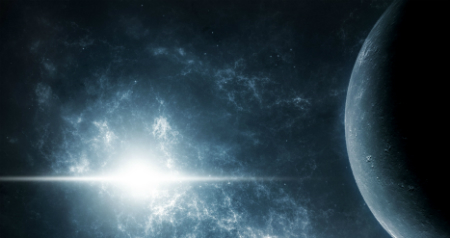
Don’t look to the sky and gods for answers. It lies deeper.

There are consequences to our actions that transcend our ordinary, classical way of thinking. Justice is built into the fabric of the universe.
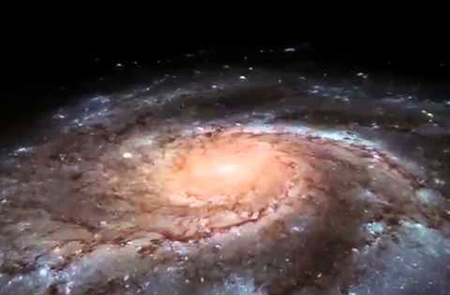
Selection From “Beyond Biocentrism: Rethinking Time, Space, Consciousness, and the Illusion of Death”.

Here we tell you what happens after you’re dead. Seriously. Okay, it’s not so serious, because you won’t actually die.

In the modern prevailing view of the cosmos, we sit here as tiny unimportant specks of protoplasm, flukes of nature, and stare out into an almost limitless void.
Reality is an active process that always involves our consciousness. Everything we see and experience is a whirl of information occurring in our minds, shaped by algorithms (represented here by digital 0s and 1s) that create brightness, depth, and a sense of time and space. Even in dreams, our mind can assemble information into a 4D spatiotemporal experience. “Here,” said Emerson, “we stand before the secret of the world, there where Being passes into Appearance, and Unity into Variety.”
‒ From Beyond Biocentrism
